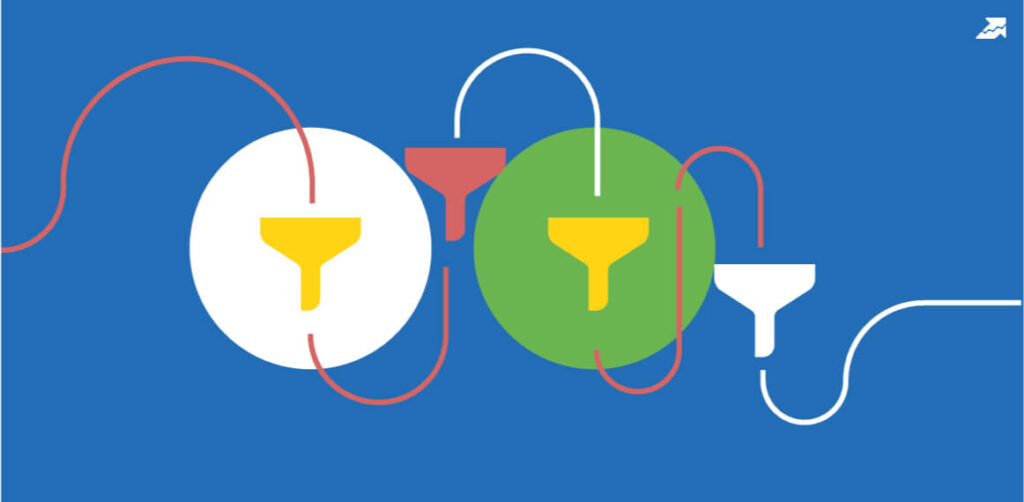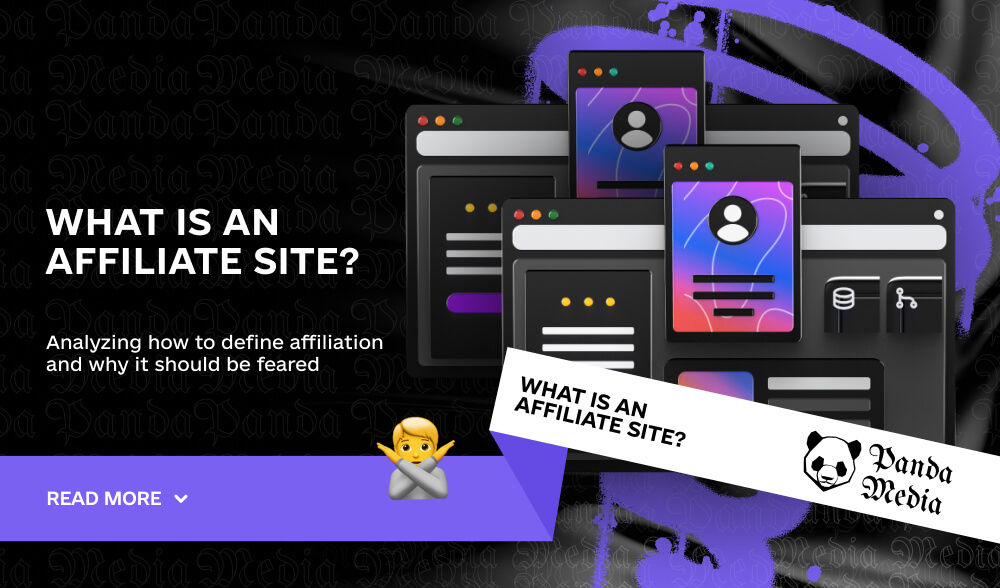
The Google Affiliate Filter is one of the oldest filters on the search engine. It is applied to likely affiliated sites.
Help: The concept of affiliates was first formulated in 2007, when they were referred to sites participating in the Google AdSense contextual advertising system, but later the concept was transferred to the search engine. Google representatives are sure that affiliates are of no value to users, especially if they are part of programs for distributing their content among other resources, and this is noticeable when the search engine displays several sites with identical content at once.
What is an affiliate site
The meaning of the word affiliate is similar to the English word affiliate, which is where it came from, so today it is applied to a resource that does not provide users with new information about another source of similar topics. If several websites in the search results belong to the same owner and contain almost identical information, but they are not mirrors, search engines apply special filters to them, thus eliminating such resources and leaving the main one available. Other sites are considered affiliated, which causes them not to be displayed in the results for the queries made.
There was a time when large offline players tried to monopolize search results by clogging them with several copies of their site, but on different domain names. With their budgets, they squeezed smaller market players out of the search results by taking two, three, or even more positions. However, since Google tries to provide users with not only relevant but also diverse information from different sources, the search engine recognized such actions as a violation. As a result, an affiliate filter is automatically applied to all sites that Google recognizes as copies of the main site.
There is no clear rule which site is determined as the main one, but most often it retains its position:
- the very first (subject to mirroring)
- the most authoritative (the most trusted, with the most traffic
- the most regular audience, the largest number of pages and high positions)
- on a domain that is 100% matching the company name
Interestingly, the filter is not applied to affiliate sites that do not overlap with search phrases in the search results. That is, if your company has two or more sites in different areas of activity that do not overlap, but have all the signs of affiliates, the Google affiliate filter will not be applied.

Why do you create affiliates?
The main goal of creating affiliates is to monopolize the search results, i.e. to capture more leading positions and attract maximum traffic. That is why they promote a group of similar sites. Business owners want to fill the top 10 with clones and block the way for competitors. The idea is promising, but it is a huge risk, as search engines easily recognize and severely punish violators.
How do search engines identify such sites?
Search engines negatively perceive affiliations and actively fight against them – clone sites are removed from the search results. Google representatives deny the existence of affiliate filters, but the sanctions for this are quite real. Perhaps it’s all about the different wording used to describe this phenomenon. Let’s take a look at how the most popular search engine defines affiliates.
How does Google check?
Google Webmaster Guidelines contain information about low-quality affiliate sites. The guide says that pages with the same content are useless for users, and the search results are formed in such a way as to prevent this. The Supplementary results filter is responsible for this, it detects unique content. Clones are removed from the search results and get into Google’s additional index, so they practically stop bringing traffic to their owners.
If I have two identical sites – which site will win in the end?
The answer is ambiguous here – it doesn’t matter which site wins, because one of the sites will lose. This means that time and money will be lost. Therefore, if you notice such activity, there are two main steps to take:
- Close one of the sites from indexing by search engines or delete the site.
Make two full-fledged sales channels:
- develop other sites under other brands
- use different directory structures on websites
- develop a site for a specific niche of products from the main site under a different brand
- do not publish texts from the main site to other sites and platforms
- register for each Google My Business site for different legal entities and contacts
- do not make links between sites
- do not promote sites for the same queries
- do not copy other people’s content and do not allow your texts to be used on other sites.

So, is there anything to be afraid of?
Yes, you should be afraid, as it can take months to lift sanctions. If the resource has started to lose ground or stopped being indexed, check it for an affiliate filter in Pixel Tulsa, Majento, or Copyscape services.
A clear sign of sanctions is a staggered order of website positions in search for different queries. For example, for one keyword, the first resource ranks high, the second is below the top 100, and for another keyword, on the contrary, the first is below the top 100, the second is in the first place. If you detect an affiliate filter, try updating your contact information, changing the design, content, changing the hosting – usually such actions help.
We do not recommend manipulating affiliates and using black hat methods of promotion. After all, search engines will still detect violations and will definitely punish you. As a result, you will spend a lot of time and effort that could be invested in a safer and more effective SEO strategy.
Conclusion
Thus, we realized that the affiliate filter is a necessary guardian that protects the principles of fair competition. Under the current conditions, clear cooperation with search engines will be the key to the prosperity of online business, as well as the most positive impact on the image of the promoted brand and the company as a whole. Professionals will help you with this by conducting search engine optimization of your website and bringing your site to the top of the search results.


